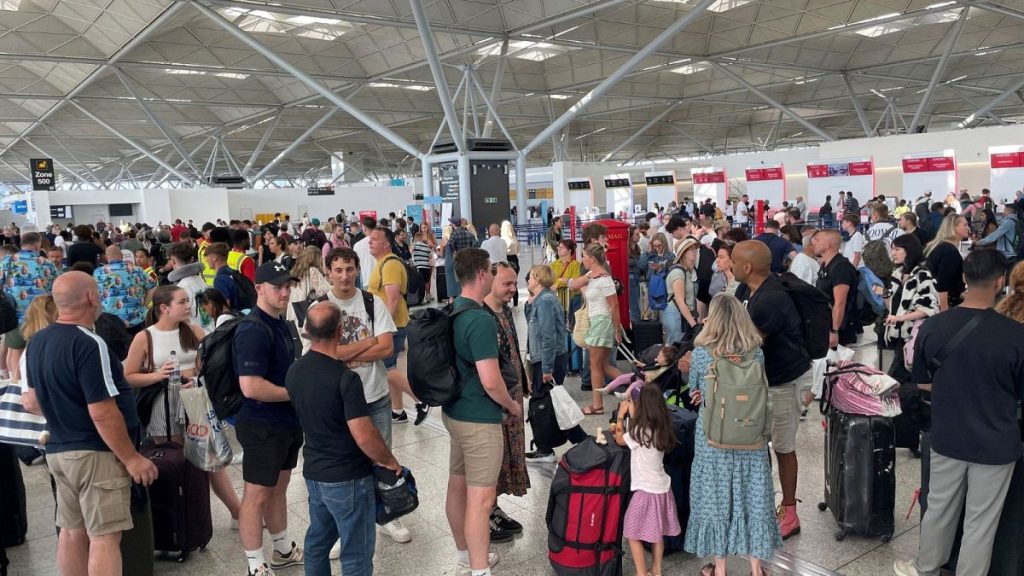The world’s biggest IT outage on Friday 19 July caused chaos for hundreds of thousands of holidaymakers in Europe as a result of a faulty software update from cybersecurity firm CrowdStrike. The outage primarily impacted airlines, as most rely on Microsoft’s Office365 software for scheduling and check-ins. This resulted in over 4,000 flight cancellations and 35,500 delays worldwide by Friday afternoon, affecting various systems including ground handling companies. Some airports, like Berlin Brandenburg, were able to resolve their IT issues quickly, while others, like Spain’s Aena network, faced widespread disruption.
US airlines bore a disproportionate number of flight cancellations following the IT outage, with American carriers canceling around 3.5% of their flights on Saturday. The hub and spoke model favored by US airlines such as Delta, American, and United, where flights are funneled through major airports for connections, contributed to the significant impact on their operations. In contrast, European airlines, like British Airways which largely relies on one hub at Heathrow, were better able to bounce back as they had fewer misplaced aircraft and air crews. Schiphol and Heathrow, major hub airports, were more affected than smaller ones due to their reliance on centralized operations.
Budget airlines such as easyJet and Ryanair fared better during the IT outage compared to larger international carriers like BA, Air France, and Lufthansa. This was attributed to their simpler networks and less sophisticated automation systems. Low-cost carriers in the US, like Southwest Airlines, were also less impacted due to older software platforms and dealing with more point-to-point flights. The reliance on cloud servers and modern IT systems made airlines more vulnerable to the IT challenge, highlighting the need for more diverse software solutions in the industry.
The IT outage highlighted the centralized nature of the software industry and the potential for future disruptions. Airlines and airports are now evaluating their systems to address vulnerabilities, but the risk remains. The lack of software diversity poses a significant threat, with the potential for catastrophic events to occur again in the future. This event serves as a wake-up call for the aviation industry to strengthen contingency plans and increase resilience to prevent similar disruptions from impacting air travel in the future. Overall, the IT outage exposed the vulnerabilities inherent in modern air travel infrastructure and the need for greater preparedness in the face of technological challenges.









